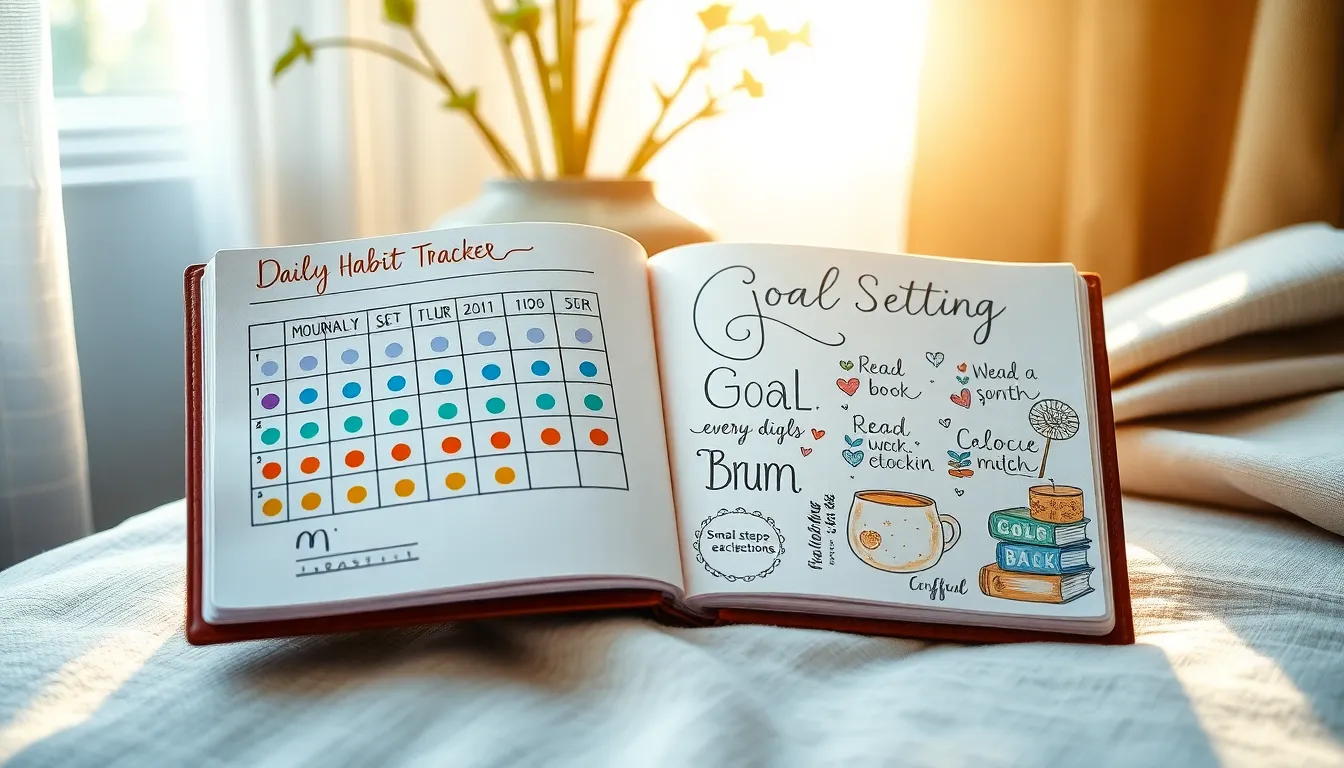Journaling daily is a powerful tool for self-reflection and growth. It offers clarity and peace, helping to nurture your mental and emotional well-being.
By making journaling a habit, you’ll uncover insights and cultivate mindfulness. Embrace this journey to enrich your daily life with intention and joy.
Set a Daily Journaling Schedule

Establish a consistent journaling routine by choosing a specific time each day. Commit to just five minutes; small, regular sessions are more sustainable than sporadic, lengthy ones.
Use simple prompts to ease into writing: “What am I grateful for today?” or “What did I learn today?” This clarity helps maintain focus and fosters reflection.
Create a Dedicated Writing Space

Create a cozy writing nook by choosing a quiet spot with good lighting. Keep your favorite pen and journal here, making it an inviting space you’ll look forward to visiting.
Enhance focus by adding personal touches like a plant or candle. Try prompts like: “What am I grateful for today?” or “What brought me joy recently?” to spark inspiration.
Select Your Preferred Journal Style

Discover what feels right to you: a sleek notebook, a digital app, or a creative bullet journal. Your preference makes a difference in consistency. Choose a style that excites you to open it daily.
Experiment with prompts to spark creativity. Try these:
- “What am I grateful for today?”
- “What is one thing I learned this week?”
Keep it simple, and let your thoughts flow freely.
Begin with Reflective Prompts

Start your journaling with reflective prompts to spark deeper insights. Consider asking yourself: “What am I grateful for today?” or “What did I learn about myself this week?” These questions help guide your thoughts and make journaling more meaningful.
Consistency is key—choose prompts that resonate with you and revisit them regularly. This habit encourages self-discovery and growth. Keep it simple: select 1-2 prompts that feel right and let them lead your writing journey.
Review and Track Your Progress

Regularly review your entries to track growth. Set aside time weekly to identify patterns, achievements, and areas for improvement.
Use prompts like:
- “What’s one thing I learned this week?”
- “How have I progressed in my goals?”
to reflect deeply and enhance your journaling journey.
Conclusion: Creating Beautiful Outdoor Spaces
Incorporating journaling into your daily routine can profoundly enhance your relationships by fostering a deeper understanding of yourself and your partner. First, we explored the importance of self-reflection for personal growth, which sets the foundation for healthier connections. We then highlighted the power of gratitude journaling to shift your focus toward appreciating the positive aspects of your relationships. Third, recognizing patterns through journaling can illuminate recurring issues, allowing for more constructive resolutions. Fourth, setting intentions through writing can help you manifest the relationships you desire. Lastly, journaling enhances communication skills, equipping you with the clarity needed to express your thoughts and emotions effectively.
As a first step, commit to writing in your journal for just five minutes a day and observe the transformations it brings to your interpersonal dynamics. Bookmark this article as your go-to guide for nurturing your relationships through journaling. Remember, the journey to relationship success is ongoing, and your efforts today lay the groundwork for a more connected and fulfilling future. Your relationships deserve the attention and care that journaling can facilitate, so embrace this empowering tool and watch your connections flourish.

